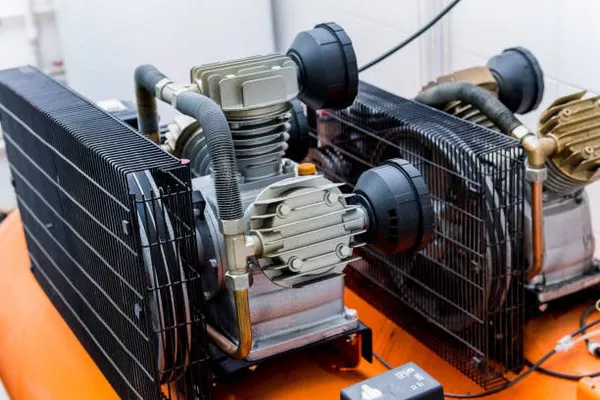Generators play a crucial role in providing backup power during outages, emergencies, and remote locations where a stable power supply may be unreliable. One of the key considerations when utilizing a generator is understanding how long it can run continuously. The runtime of a generator is influenced by various factors, and a comprehensive understanding of these aspects is essential for efficient and reliable operation.
Fuel Type and Capacity
The type of fuel a generator uses is a significant factor in determining its runtime. Generators can be powered by diesel, gasoline, natural gas, propane, or even solar energy. Each fuel type has its own energy density and burn rate, directly impacting the generator’s runtime. Diesel generators, for example, are known for their fuel efficiency and extended runtimes, making them suitable for prolonged power outages.
Moreover, the generator’s fuel capacity is crucial. Larger fuel tanks allow for longer runtimes without the need for frequent refueling. However, the size of the fuel tank should be balanced with the available space and the specific requirements of the application.
Load Capacity
The load capacity or the amount of electrical load connected to the generator significantly influences its runtime. The more electrical devices and appliances connected to the generator, the higher the load, and consequently, the faster the fuel consumption. Understanding the power demands and managing the load appropriately can extend the generator’s runtime.
It is essential to assess the power requirements of the connected devices and prioritize them based on necessity. In emergencies, focusing on essential appliances and equipment helps optimize the generator’s performance and prolong its operation.
Generator Size and Efficiency
The size and efficiency of the generator itself play a crucial role in determining how long it can run. Larger generators generally have higher fuel capacities and can handle more substantial electrical loads. However, the efficiency of the generator’s engine also matters.
Modern generators often come equipped with advanced technology and features that enhance fuel efficiency. Variable speed engines, automatic voltage regulators, and intelligent load management systems contribute to optimizing fuel consumption and extending runtime.
Environmental Conditions
The operating environment has a significant impact on a generator’s performance and runtime. Temperature, humidity, and altitude can affect the combustion efficiency of the engine and the overall efficiency of the generator. For example, generators may consume more fuel in extremely hot or cold conditions.
Regular maintenance and monitoring are crucial to ensure the generator is operating at peak efficiency. Clean air filters, proper ventilation, and cooling systems contribute to maintaining optimal operating conditions and, consequently, extending the generator’s runtime.
Maintenance Practices
Regular maintenance is vital for the longevity and efficient operation of any generator. Neglected generators are prone to malfunctions and increased fuel consumption, leading to shorter runtimes. Routine tasks such as oil changes, fuel filter replacements, and inspections of critical components contribute to the generator’s reliability.
Additionally, generators should be started periodically, even if not in use, to prevent fuel system issues and ensure that the engine remains in good working condition. Regular maintenance not only extends the generator’s runtime but also enhances its overall performance during operation.
Fuel Quality
The quality of the fuel used in a generator significantly impacts its performance and runtime. Contaminated or degraded fuel can lead to engine problems, reduced efficiency, and increased fuel consumption. It is crucial to use high-quality fuel and store it properly to prevent issues such as water infiltration, microbial growth, and sedimentation.
Fuel stabilizers can be used to maintain the quality of stored fuel over time. Periodic testing of the fuel for impurities and degradation ensures that the generator receives clean and efficient fuel, contributing to a longer runtime and reliable operation.
Automatic Transfer Switch (ATS) and Fuel Monitoring Systems
The integration of an Automatic Transfer Switch (ATS) and Fuel Monitoring Systems enhances the efficiency and autonomy of a generator. An ATS enables the generator to start automatically when a power outage is detected and stop when the main power is restored. This automation ensures a seamless transition and minimizes downtime, especially in critical applications.
Fuel monitoring systems provide real-time information about fuel levels, consumption rates, and remaining runtime. Operators can use this data to schedule refueling and avoid unexpected interruptions. These technologies contribute to optimizing the generator’s runtime and ensuring a continuous power supply.
See Also How Long Should The Emergency Generator Work
Conclusion
In conclusion, the runtime of a generator is influenced by various interrelated factors, and a comprehensive understanding of these elements is essential for efficient and reliable operation. Fuel type and capacity, load capacity, generator size and efficiency, environmental conditions, maintenance practices, fuel quality, and the integration of advanced technologies all contribute to determining how long a generator can run.
Regular maintenance, proper load management, and the use of high-quality fuel are critical components of maximizing a generator’s runtime. Additionally, advancements in technology, such as automatic transfer switches and fuel monitoring systems, provide tools for operators to optimize generator performance and ensure a continuous power supply in various applications. By considering these factors and adopting best practices, users can confidently rely on generators to provide uninterrupted power when needed most.

